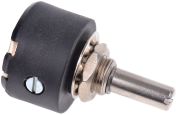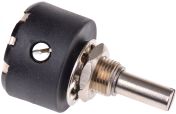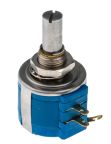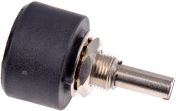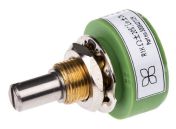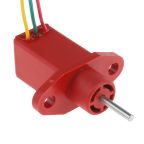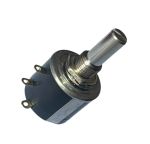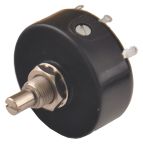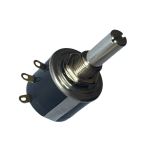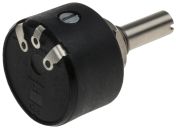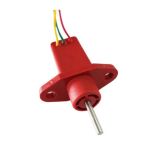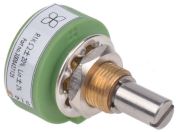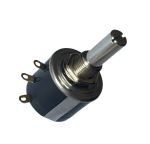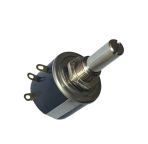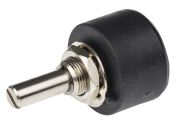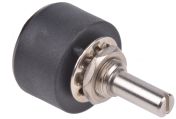Potentiometers
A potentiometer, commonly referred to as a pot or potmeter, is a variable resistor that allows you to adjust and change the current flowing through a circuit. Potentiometers consist of two fixed terminals connected to a resistive element (the track), commonly made of wirewound, carbon, cermet, or conductive plastic. The third terminal attaches to the wiper, which slides across the track altering the resistance and, consequently, the current in the circuit.
Types of Potentiometer
Rotary Potentiometer
Rotary potentiometers, adjusted by turning a spindle or knob, come in single-turn or multiturn variations. They are essential in applications requiring precise control adjustments.
Slide Potentiometer
Also known as slider or fader potentiometers, these devices adjust resistance through a slider moving along a track. Ideal for applications where linear movement of resistance is crucial.
Trimmer Potentiometer
Trimmer potentiometers, or trimpots, are mounted directly onto PCBs and are instrumental in circuit calibration and fine-tuning, easily adjusted with a screwdriver.
String Potentiometer
String potentiometers convert physical movement into electrical signals, suitable for measuring displacement in various industrial applications.
Membrane Potentiometer
These flat potentiometers alter their resistance when pressure is applied to the surface, making them perfect for sensitive applications where direct pressure integration is needed.
Choosing the Right Taper for Your Potentiometer
The taper you need for your potentiometer depends on the intended application.
For potentiometers with a linear taper, the resistance between one end of the track and the wiper varies at a constant rate. If you turn the potentiometer halfway or slide the fader halfway along the track, the resistance will be half of the total resistance. Linear taper potentiometers are typically used in applications such as light dimmer switches.
For logarithmic taper potentiometers, the resistance does not vary at a constant rate. The level of resistance moves exponentially up or down. A potentiometer that has been turned or moved halfway along its track, will not produce resistance that is half the total resistance. Logarithmic potentiometers are commonly used for audio applications.
What is the Difference Between a Potentiometer and a Rheostat?
The key difference lies in the number of terminals that each device has. Potentiometers have three terminals while rheostats only have two terminals. This distinction affects their wiring and potential applications in circuits.
Applications of Potentiometer
Potentiometers are versatile devices used in various settings:
- Volume Controls: Adjust audio levels in consumer electronics.
- Motion Control: Facilitate precise settings in industrial automation.
- Measurement Systems: Gauge physical quantities converted to resistance.
Discover Top-quality Potentiometers for Your Projects Today!
RS is your go-to distributor for high-quality potentiometers in New Zealand, offering products from leading brands like VISHAY, TE Connectivity, and RS PRO. Whether you need a robust industrial potentiometer or a precise surface mount variant, our extensive selection ensures you find the perfect match for your project needs.
Ordering & Delivery Information for New Zealand
RS is committed to offering prompt and reliable delivery across New Zealand. Our vast array of electrical components, including aluminium capacitors and proximity sensors, is designed to meet your requirements. For more details on our delivery services and to check potential costs, please visit our Delivery Information page.
